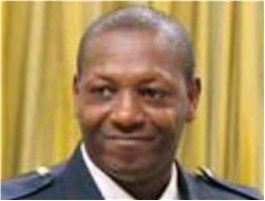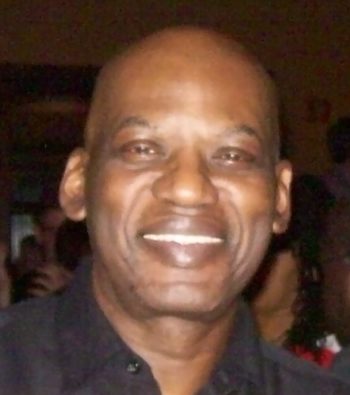
Monday 15 April 2024
Rockers United Sports Club – 50 Year History
by David Tulloch
The Rockers United Sports Club is preparing to celebrate its 50th anniversary on July 6, 2024. The Club will be staging an elegant banquet at the Sala San Marco Banquet facility located at 215 Preston Street in Ottawa. This event promises an evening of top-class dining and entertainment, featuring world-renowned Jamaican Reggae artist Ambelique, top-class comedian Ronnie Edwards, and Ottawa’s own CTV Morning Host Stefan Keys as the premier MC, plus local artist Andre Duhaney and DJ Hypnotic.

Rockers was established in 1974 by a group of young Jamaican soccer enthusiasts Algonquin College students. The idea to form this club was proposed by Lionel (Bingie) Barker, who in 1974 with several other Jamaican students became the core of the first Algonquin College Soccer Team to compete in the inter-collegiate league.

The Rockers United soccer team was admitted into the Ontario Carleton Soccer League (OCSL) in 1975 making its debut in the Recreation B Division the lowest tier in 1976. But league admittance was fraught with significant challenges. The OCSL had no desire to admit a second All-Black soccer team in the League; the first being the Hurricanes another Caribbean team, made up of mainly Eastern Caribbean players. At their general meeting where the Rockers attendees made the admittance request but had no standing, a heated debate erupted about whether they should allow entry. Mike Moore a member of another club, pointed out the flaw in their biased arguments. Mike’s rebuttal tipped the scales. The vote was in Rockers’ favor, and the rest of the story is a 50-year history.
By 1978, in their third season, Rockers United became the Division 2 champions. This pattern of division champions became virtually an annual phenomenon which meant upward progression to successive divisions until the team became a fixture in the OCSL’s Division I. The Rockers soccer team also won several ancillary tournaments, outclassing major competitive clubs to win the Ottawa Cup in 1980 in their fourth year in the league. They continued to win many other competitions as well as advancing to the 1986 Ontario Cup semi-finals.
But as with most sports, age is a determinant factor not only for the individual players but for the sports organization at large. The survival of the club was dependent on the continual investment in young players as the elders faded away from the playing field. Given that Rockers was at its core a population of Caribbean immigrants, it became obvious that its survival was contingent on the broadening of the scope for new players. Rockers faced this challenge with gusto. At the club’s 10th Anniversary, Alic Edgar a founding member articulated, “We are looking for good players…. and it doesn’t matter where they come from”. To the extent that this statement laid out the future direction for the club, the most recent inventory noted that players from some thirteen different countries: including Algeria, Barbados, Belize, Canada, Dominica, Haiti, Iran, Iraq, Jamaica, Kenya, St. Lucia, Trinidad & Tobago, and Tunisia have represented Rockers on the field.

But as Rockers United approached its late twenties, the player’s retirement rate was rapidly outpacing the new players’ replenishment rate. The club was in a decline. At that time the leaders mused on folding the organization. But Peter Nesbeth, a career Law-enforcement officer and an avid soccer player/coach stepped up to take on the torturous task of rebuilding the organization. Peter had been spending his off-duty hours rounding up youths whom he saw hanging out at malls, encouraging them to do something more productive with their time, then bringing them onto a soccer field and coaching them how to play the game. Peter took on the role of President and Player/Coach. He immediately introduced several drastic changes and brought on board the young men that he had been coaching to begin the transformation of the Club to become a rejuvenated, stable, and disciplined organization.
1997 marked another significant milestone. Rockers established Ottawa’s first all-black women’s soccer team. Rockers-affiliated women who were ardent supporters wanted to be included in the soccer club. Sisters from the Charles, Bell, Codett, Campbell, and Agard families joined with head coach Ben Charles, an Eastern Ontario District Soccer Association (EODSA) disciplinary judge, along with assistant coaches Noel Dixon and Donald Bell, all retired Rockers players, to build a contingent to 16 players. The Rockers United women’s team entered the Recreation Association (RA) League and won their group for four consecutive seasons. Then in 2004 a Rockers Women’s competitive team was formed by coach Jacquie Dixon and began playing in competitively in the OSCL.
Rockers currently field four teams in the OCSL, including the only All-Black women’s team in the league. Each Rockers game attracts a host of fans from a wide cross-section of the Ottawa community, and with this overwhelming community support, the Rockers United Sports Club proudly celebrates its 50th year as an Ottawa sports institution.

Dave Tulloch was born in Jamaica. He immigrated to Canada in 1970 to pursue post-secondary education. He earned a diploma in electronics engineering technology from Algonquin College, a Bachelor of Admin and Bachelor of Commerce (Hon) from the University of Ottawa, and a Master of Business Administration from Concordia University. He has an extensive career in information technology and in IT consulting with Systemhouse, KPMG, and Oracle Corporation where he retired as a director. Dave taught IT and business courses at CEGEP (Hull) and tutored at the Wake Tech College in North Carolina. He wrote articles for the Ottawa Spectrum publication that focused on Ottawa’s Visible Minorities community and has written a book documenting the life stories of early Caribbean Immigrants to Ottawa, scheduled for publication later this year. He can be contacted via email: [email protected]
